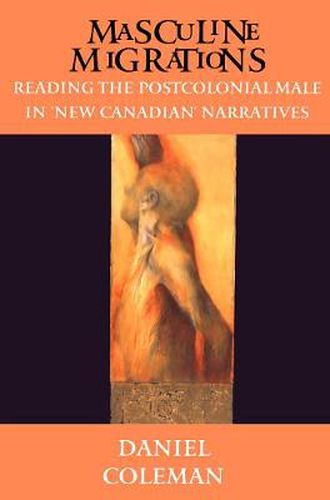Readings Newsletter
Become a Readings Member to make your shopping experience even easier.
Sign in or sign up for free!
You’re not far away from qualifying for FREE standard shipping within Australia
You’ve qualified for FREE standard shipping within Australia
The cart is loading…






This book examines the representation of masculinities in the fictions and autobiographies of some of Canada’s most exciting writers, including Austin Clarke, Dany Laferriere, Neil Bissoondath, Michael Ondaatje, Ven Begamudre, and Rohinton Mistry, to show how cross-cultural migration disrupts assumed codes for masculine behaviour and practice. It is the first book-length study of masculinities in Canadian literature and also the first to discuss these prominent postcolonial writers in relation to one another.
Coleman founds his study on the belief that literary endeavour is socially productive, reflecting but also participating in the production of social practices and identities, and therefore it is a work of cultural commentary as well as literary criticism. The book contends that we can produce alternative masculinities by reading masculinities that challenge our current assumptions, by reading masculinities that are themselves composed of contradictory segments rather than monolithic wholes, and by reading alternatively to elaborate a plethora of masculinities. By including fragments of the author/critic’s own autobiography in the text, it also dispenses with the illusion of the all-knowing, unbiased reader.
Masculine Migrations is cutting-edge scholarship and an eminently readable book, which will challenge, provoke discussion, and encourage cross-disciplinary dialogue.
$9.00 standard shipping within Australia
FREE standard shipping within Australia for orders over $100.00
Express & International shipping calculated at checkout
This book examines the representation of masculinities in the fictions and autobiographies of some of Canada’s most exciting writers, including Austin Clarke, Dany Laferriere, Neil Bissoondath, Michael Ondaatje, Ven Begamudre, and Rohinton Mistry, to show how cross-cultural migration disrupts assumed codes for masculine behaviour and practice. It is the first book-length study of masculinities in Canadian literature and also the first to discuss these prominent postcolonial writers in relation to one another.
Coleman founds his study on the belief that literary endeavour is socially productive, reflecting but also participating in the production of social practices and identities, and therefore it is a work of cultural commentary as well as literary criticism. The book contends that we can produce alternative masculinities by reading masculinities that challenge our current assumptions, by reading masculinities that are themselves composed of contradictory segments rather than monolithic wholes, and by reading alternatively to elaborate a plethora of masculinities. By including fragments of the author/critic’s own autobiography in the text, it also dispenses with the illusion of the all-knowing, unbiased reader.
Masculine Migrations is cutting-edge scholarship and an eminently readable book, which will challenge, provoke discussion, and encourage cross-disciplinary dialogue.